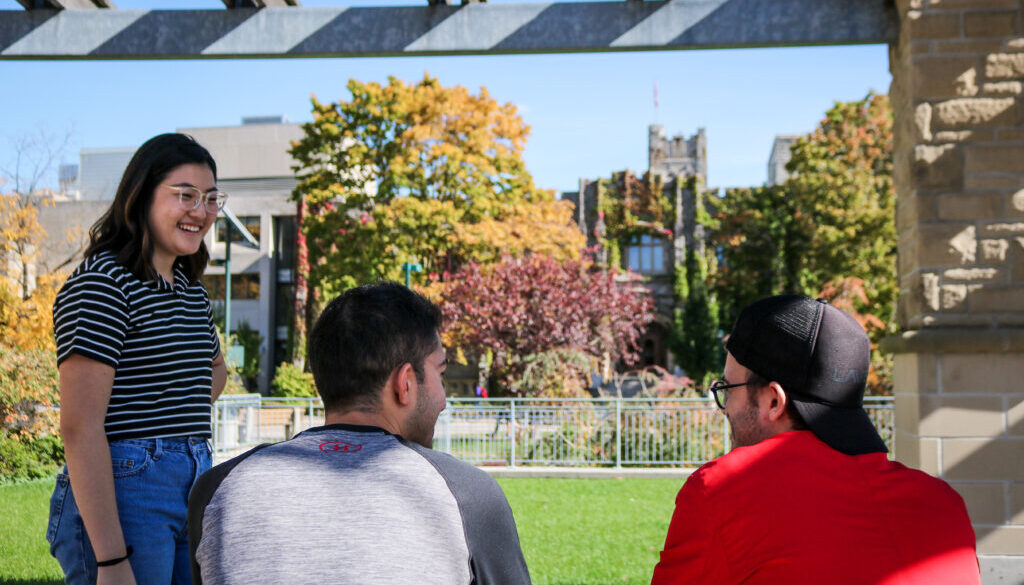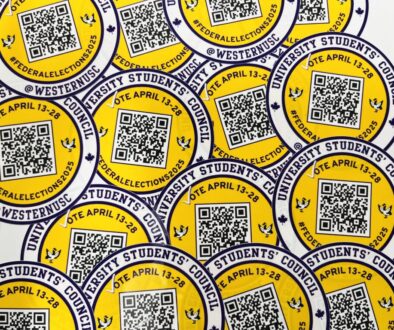Op-Ed: Western Students Deserve a Strong Voice in Federal Politics
From February 1st to 5th, vote YES on your USC ballot to join the Canadian Alliance of Student Associations, to improve your student experience and that of the next generation of Mustangs.
Just over a year ago in November 2023, the federal government announced in the Fall Economic Statement that interest would be removed from the federal portion of student loans. Considering that the federal government gives around 60% of the funding for each province’s student loan program (including OSAP), this has a huge impact on students’ finances, with the average borrower saving about $410 dollars a year.

This was a win years in the making, with one of its biggest champions being the Canadian Alliance of Student Associations (CASA), a coalition of 25 student associations from across the country representing over 365,000 students. This is just one example of CASA’s prowess as an advocacy organization, and an example of the work that has led the USC to put forward the referendum question on whether to join CASA this year.
But this win didn’t happen overnight. Advocacy is a long game. It is often about chipping away dissent and building support, bit by bit over time. Joining CASA will mean the USC will be able to both contribute to and benefit from these long-term advocacy efforts as well as the stability that having a consistent presence in Ottawa provides.
While you may not bump up against the federal government every day in the same way you may with municipal (hello, LTC), the impacts it does have often shape many of the high-level aspects of your student experience.
Are you an international student? The Federal government’s Ministry of Immigration, Refugees and Citizenship approves your visa.
Are you an Indigenous student? Post-secondary is a treaty right and the responsibility of the federal government to support Indigenous students’ success.
Do you live off-campus? The federal government has put forward billions in dollars in housing funding to municipalities (including London) to build more housing and make rent cheaper.
Want to go to grad school? Some of the biggest and most prestigious graduate funding awards in the country are awarded through the Tri-Councils and are federally funded–and also haven’t seen an increase in value since 2003.
Each of these issues is so important and affects many students’ lives both at Western and after graduation.
Currently, CASA’s advocacy priorities for the year include
- Student Financial Aid
- Housing
- Mental Health
- International Student Visa Work Hours
- Graduate Student Funding
- Indigenous Student Funding.
These priorities align with what the USC hears from you, the student body, as some of your biggest concerns outside campus.
While the USC has and will continue to work on these federal issues with our local Members of Parliament, having the physical presence in Ottawa required to push the change students deserve is impossible and financially unfeasible alone. In politics, getting into rooms is the first step to getting your issues heard. And unfortunately, getting into those rooms in Ottawa, Toronto, and London simultaneously is something even the most seasoned and adept advocates can’t do.
By collaborating with other student organizations from across the country through CASA, the USC will help set the agenda for the student movement at the national level, meaning that the USC will be able to help ensure Western students’ issues remain a top priority.
For only $2.44 per full-time student per year, the USC will be able to push Western students’ voices further, save them more money over their degree, and elevate their student experience higher than it can alone. So from February 1st to 5th, vote YES on your USC ballot to join the Canadian Alliance of Student Associations.





